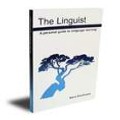Languages are unlike any other subject taught in a classroom in that they involve the acquisition of skills and behaviour patterns which are characteristic of another community.
- R.C.Gardner, Social Psychology and Language Learning, the Role of Attitudes and Motivation With your first encounter with a foreign language you are coming into contact with an "other," another language and another culture. But actually that "other" is not as foreign as you think. In time the new language and culture can become natural to you, a part of who you are. You become a linguist when you accept the fact that you can change. You can acquire skills and behaviour patterns characteristic of another culture. I have done it many times, and have seen others with no previous experience of language learning do the same.
In his excellent book, l Bosque Originario, on the genealogical myths of the people of Europe, the Basque philosopher Jon Juaristi writes: There is no nation without its tale or tales of origin. These myths are based on the logic of exclusion, of a difference constructed on the basis of exalting Us and negating the Other. Recurring themes like aboriginality, divine selection, purity of blood or language are supports of different variants of a common narrative.
The linguist knows that the differences between people, exalted in such traditions, are not based on biology but on education. The linguist sees these differences but also sees similarity. The linguist is able to grow as a person and accept elements of a new culture as part of his or her larger human identity.
Charles Pasqua, the former French Minister of Immigration in France, once said that when an immigrant arrives in France his ancestors become the Gauls, the ancient Celtic people who lived in France at the time of the Roman Empire.
The resonance of M. Pasqua's statement is not diminished by the fact that M. Pasqua, like new immigrants, had ancestors who were not Gauls. However, in French history and French myths of origin, the Gauls were important. Pasqua is French, so at least symbolically, his ancestors were the Gauls. This is part of his sense of belonging to the group.
In a similar sense, as a human being, I consider all ancient people as my ancestors. I can choose to partake of any of the traditions and cultures I see around me if I make the effort to learn them. As a result of having learned French I am able to participate in French culture and consider it a part of who I am. When I approached the study of Chinese it was in order to make this previously unknown culture a part of me, to explore my human heritage. In learning new languages it is never my intention to compare different cultures to see which is "better," but to acquire something new and valuable and expand as a human being. As a linguist it is important to let go of the security of your native language and culture and broaden your identity.
When I speak French, I try to become French; when I speak Chinese I try to be Chinese; when I speak Japanese, I act as if I am Japanese. Largely this is a form of theatre and not a change of personality. But people do observe that my facial expressions and gestures change when I speak different languages.
Until we become fluent in a language, when we speak it we should engage in a certain degree of play-acting. Have fun and pretend that you are what you are not. You should empty your mind of your ancestral culture for a while in order to better absorb the language you are learning. You do not give up your original identity, and that is certainly not the aim of language learning. But you do acquire the ability to understand the values and way of thinking of another culture.
I was a butterfly, flying contentedly Then I awoke as Zhuangzi. And now I don't know who I really am- A butterfly who dreams he is Zhuangzi Or Zhuangzi who dreamed he was a butterfly. - Zhuangzi Sports psychologists encourage competitive athletes to visualize their success. Paul Kariya is one of the top ice hockey players in the world. My younger son Mark played hockey for Yale University against Paul Kariya when Kariya played for Maine University. Apparently Kariya sat for an hour before each game and visualized himself making plays against the players on the other team. Paul Kariya is a player of relatively small physical stature who has reached the highest world level in a game of strength and speed. I am sure this technique helped him. Be like Paul Kariya: visualize your success! Try to visualize yourself as a fluent native speaker.
Visualize yourself pronouncing like a native speaker and thinking in the language. The ability to reason in the logic of other languages exists within all of us. It is there for you to develop. In that sense, language learning is a process of self-discovery. You need to accept the spirit of the new language, even if it seems strange at first. Let it be a force for uncovering your latent language abilities. There is no need to fear losing the logic or values of your native language. You will only be enriched by acquiring additional languages and new perspectives.
We have the potential to penetrate other cultures regardless of our background, as long as we are curious enough to do so. There are many examples of people who were outstanding artists in a second culture. Joseph Conrad, a Pole, is a leading figure of modern English literature. Samuel Beckett, an Irishman, wrote one of the prominent plays of modern French literature, Waiting for Godot. There are many outstanding non- European virtuosos performing European classical music. Many non-Asians dedicate themselves with success to Asian arts or traditional sports.

